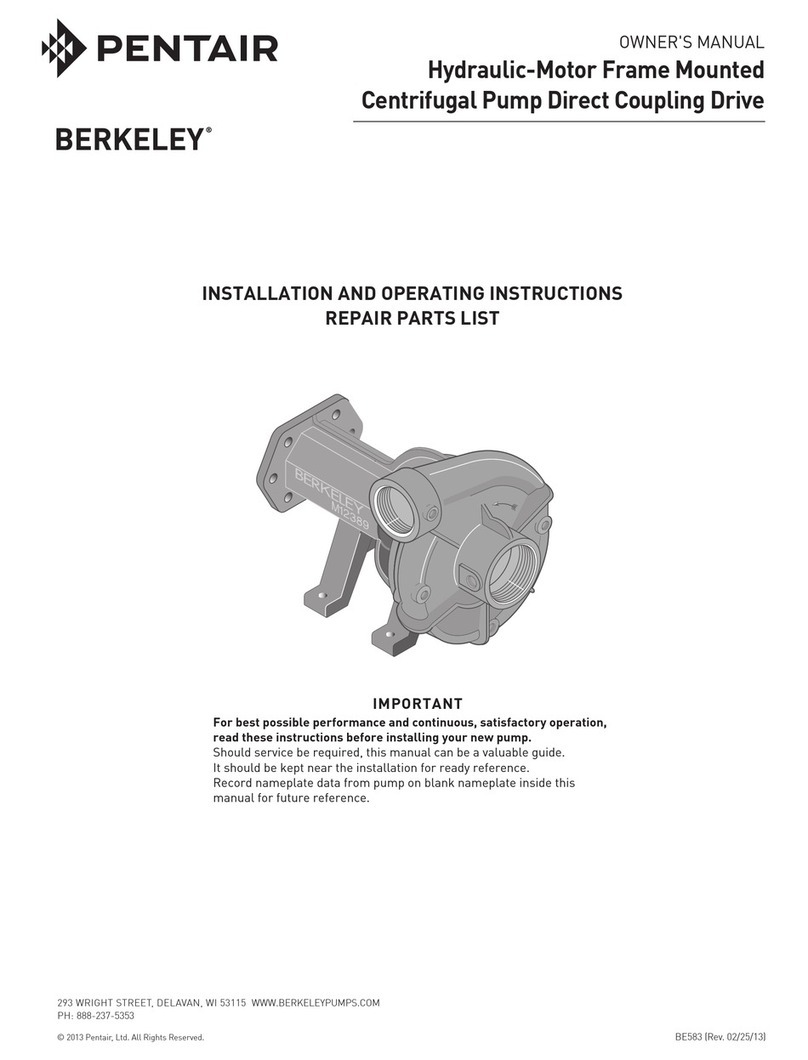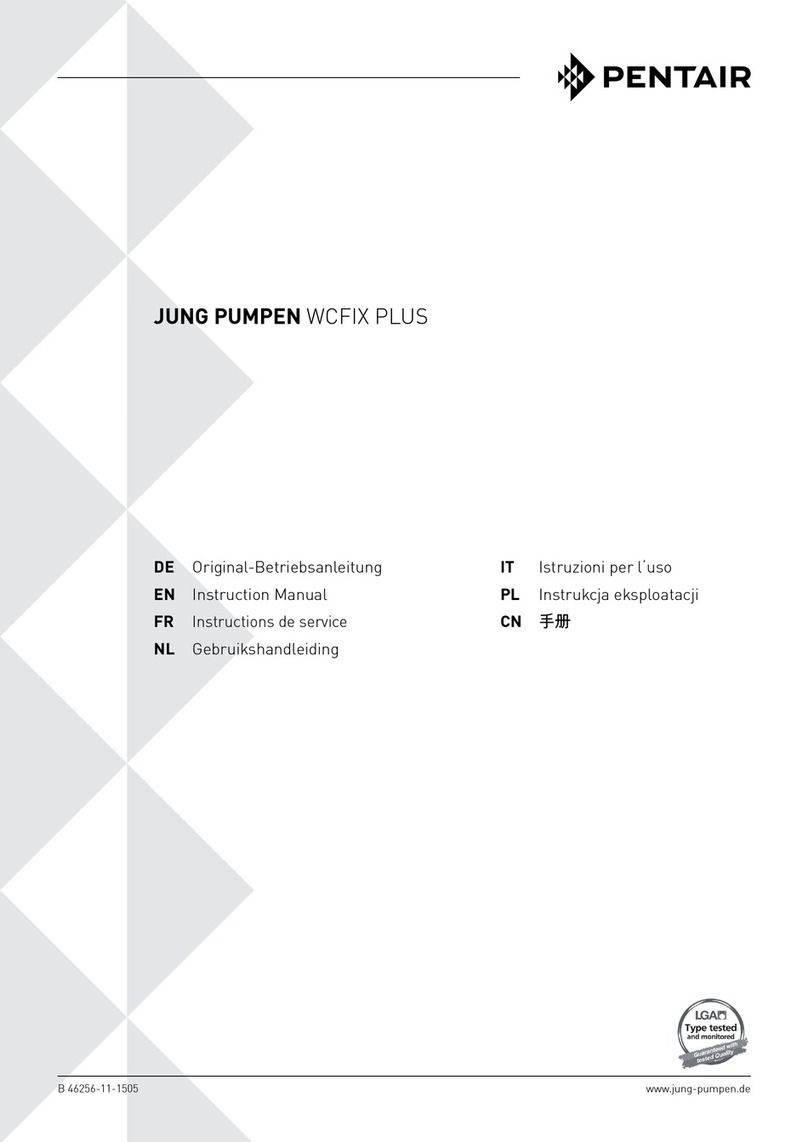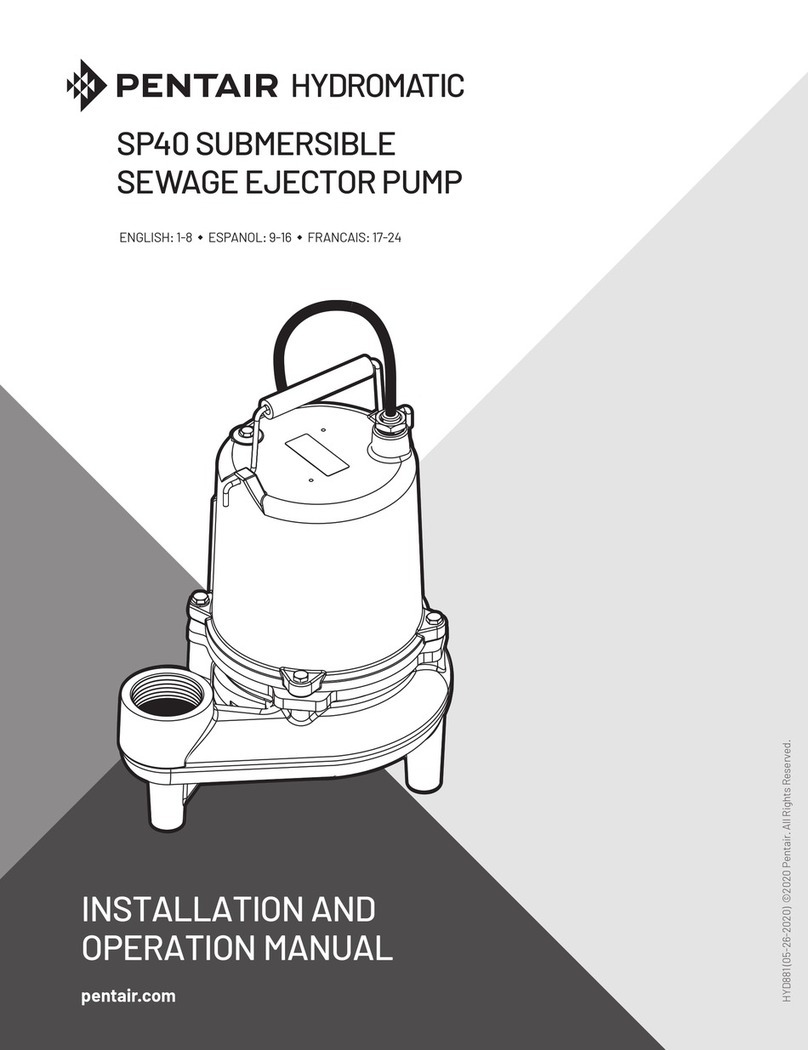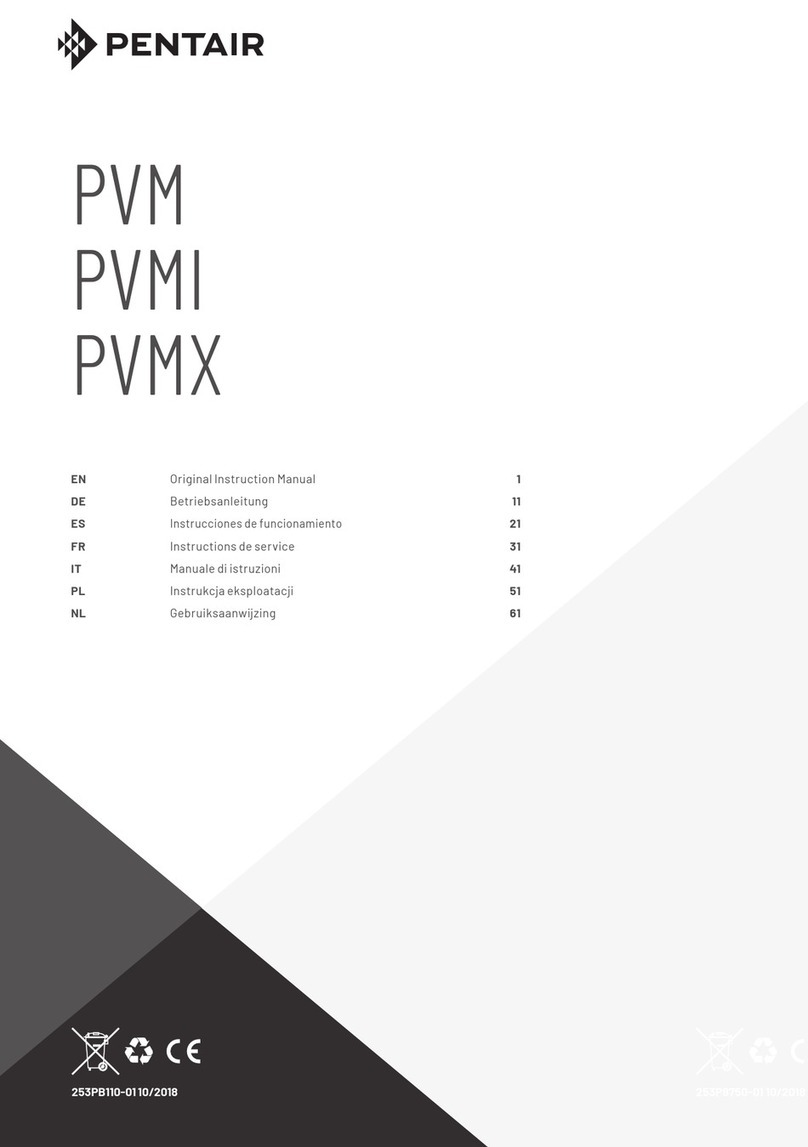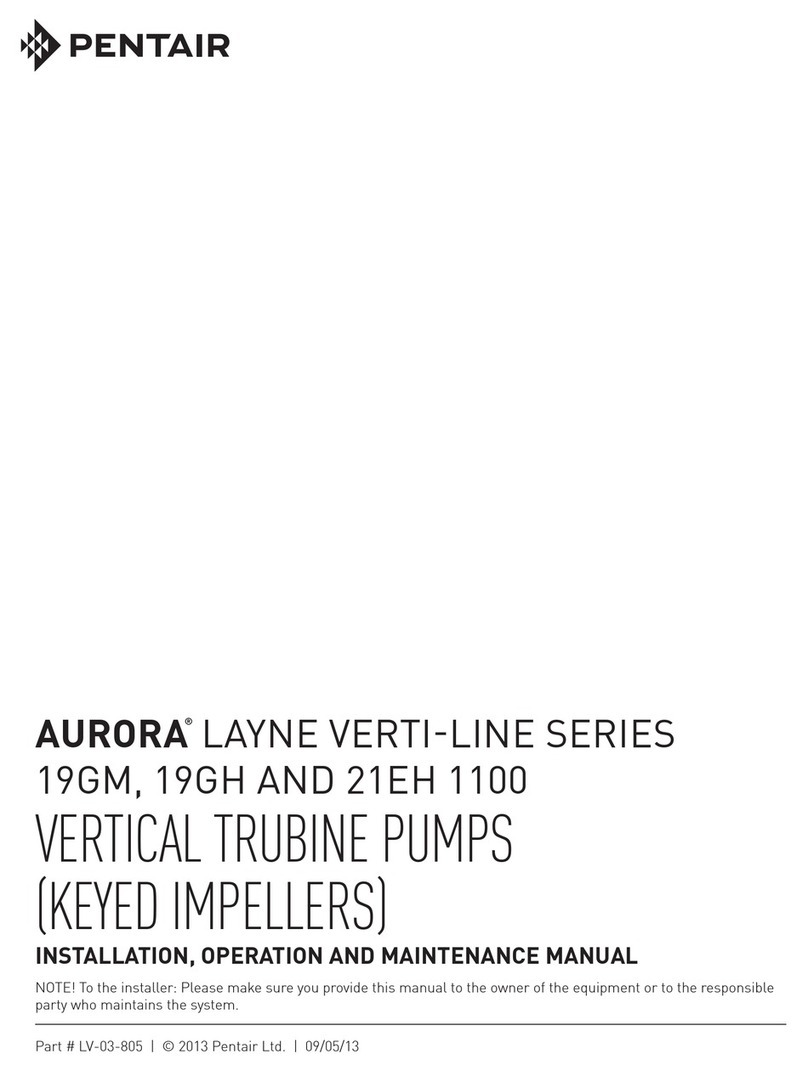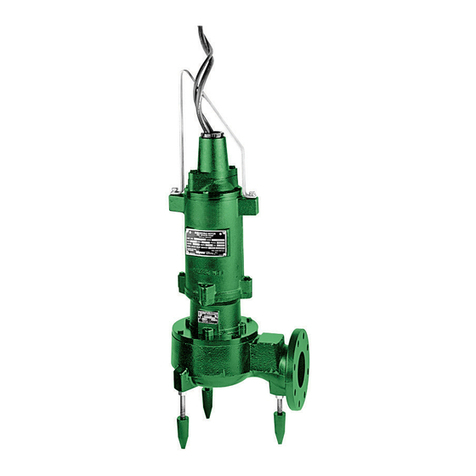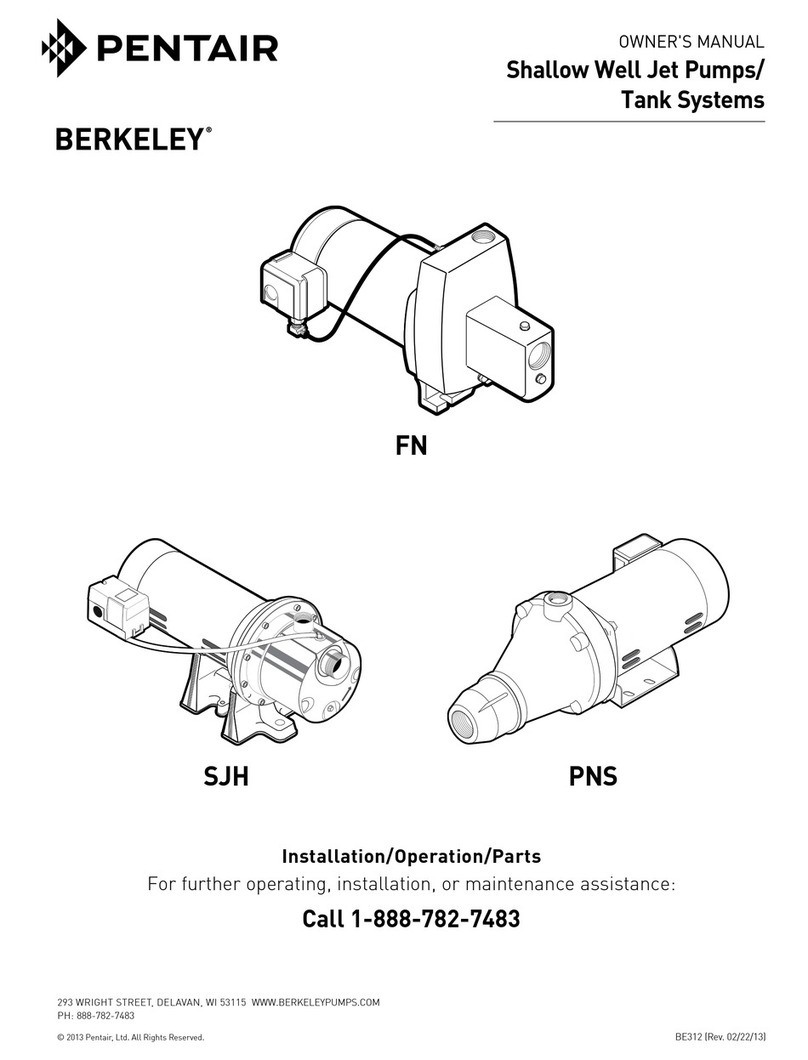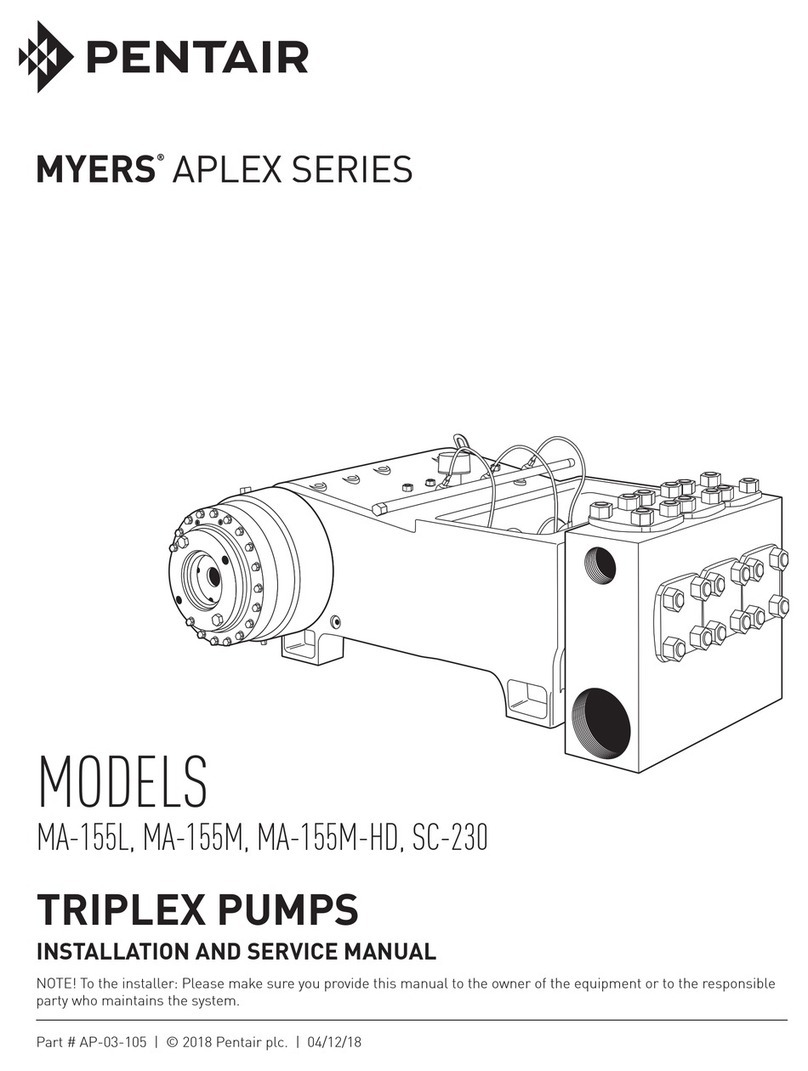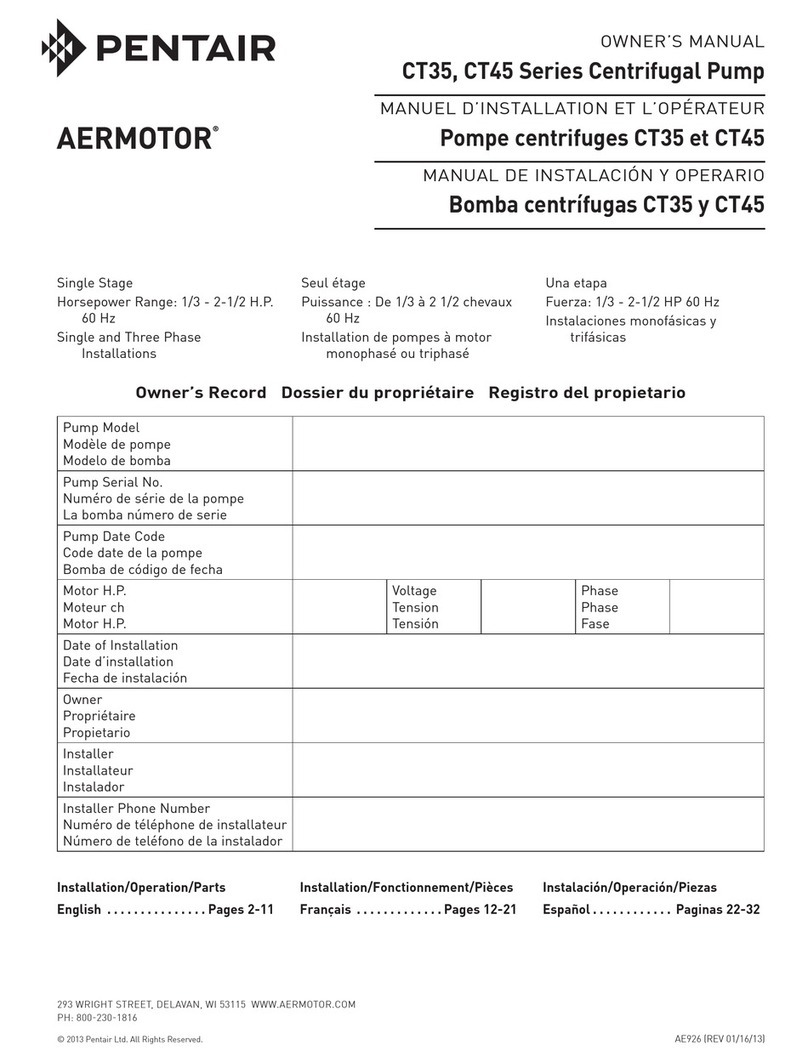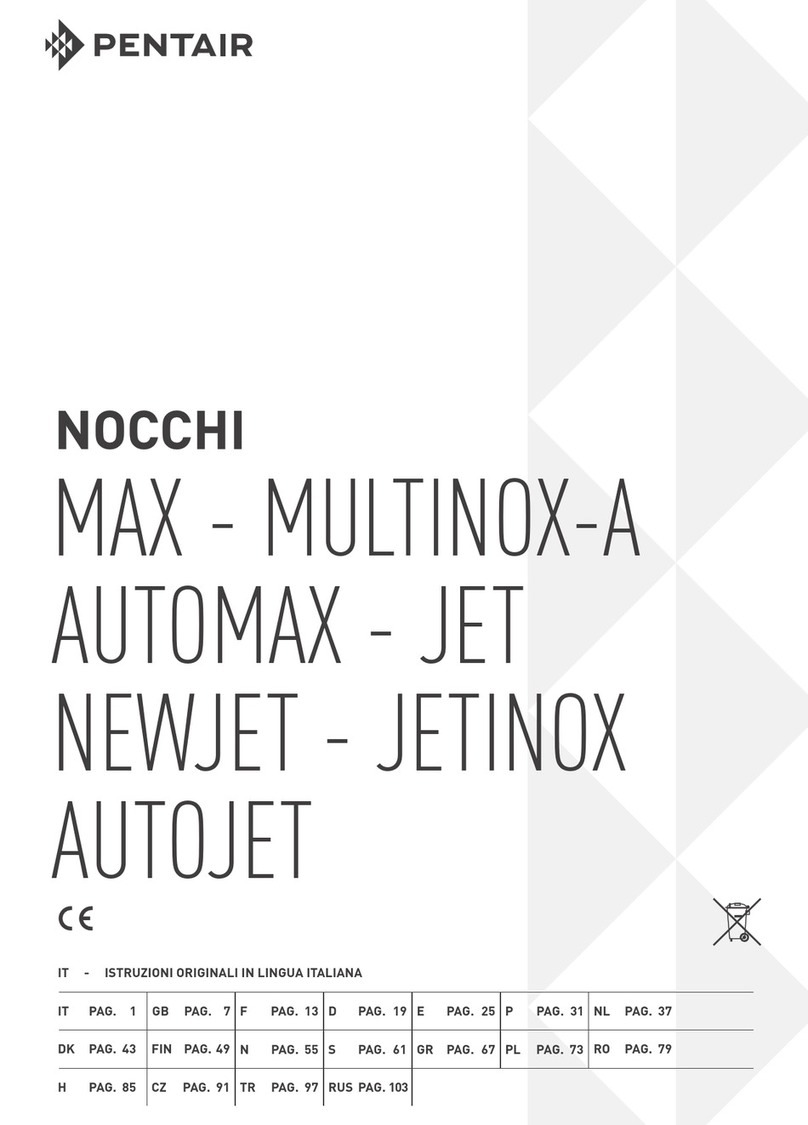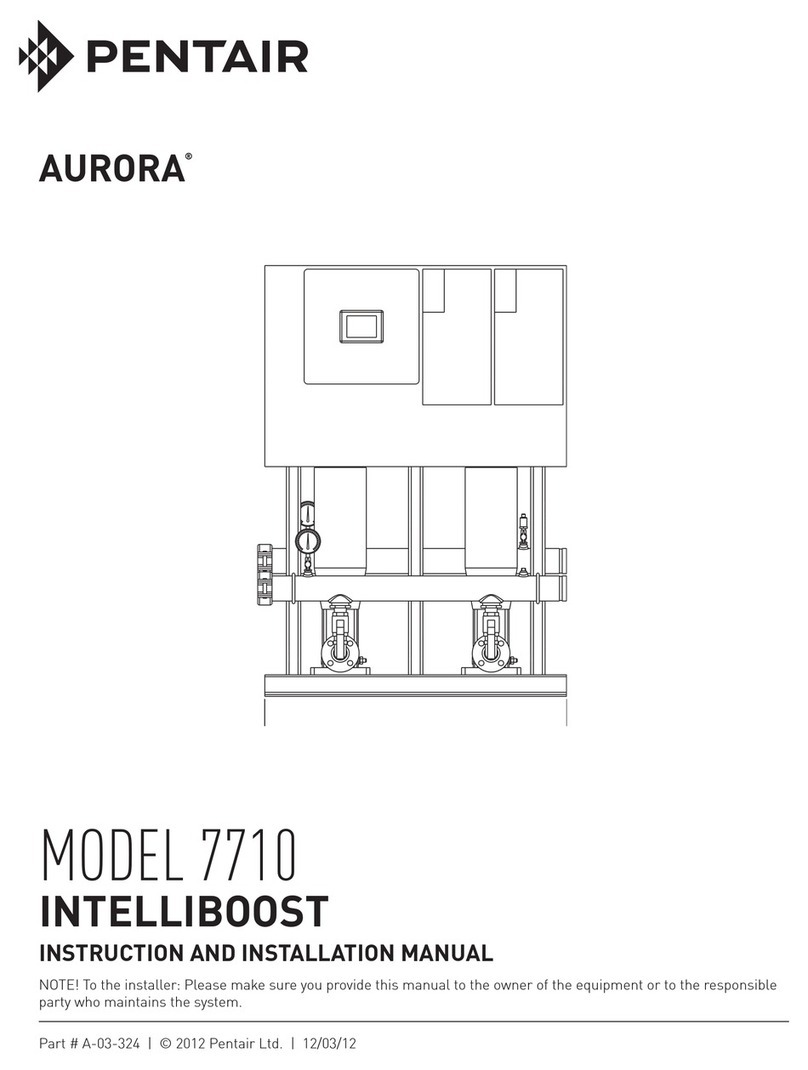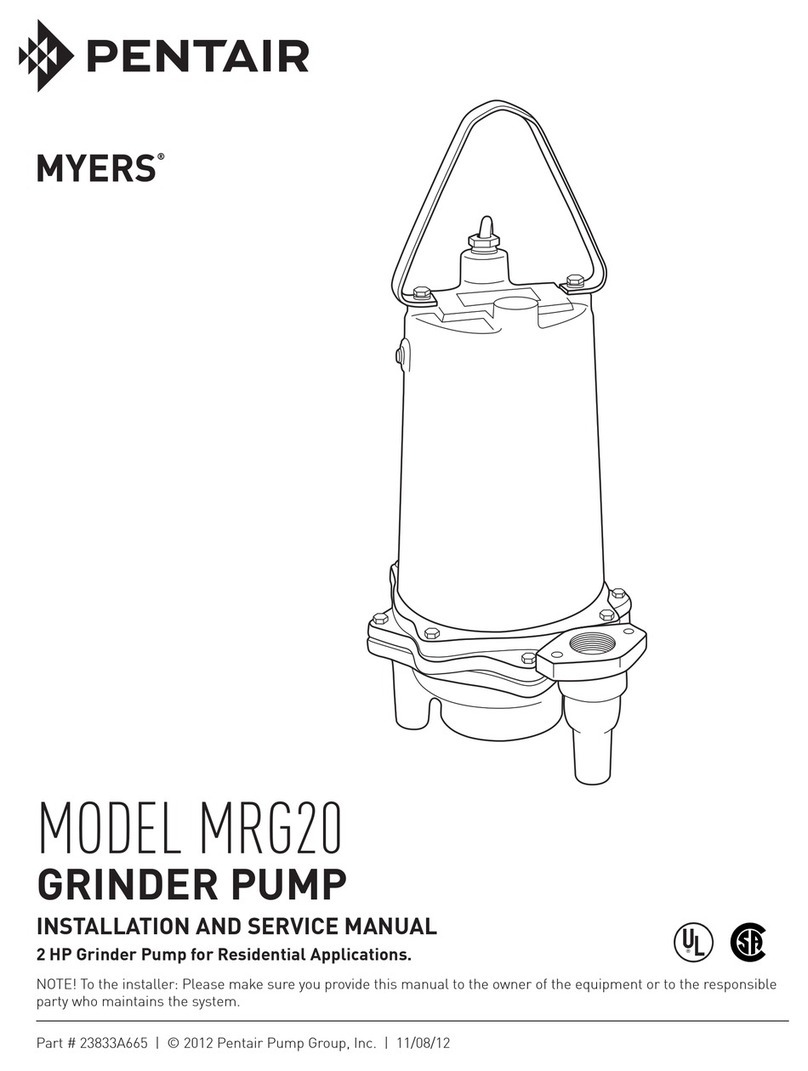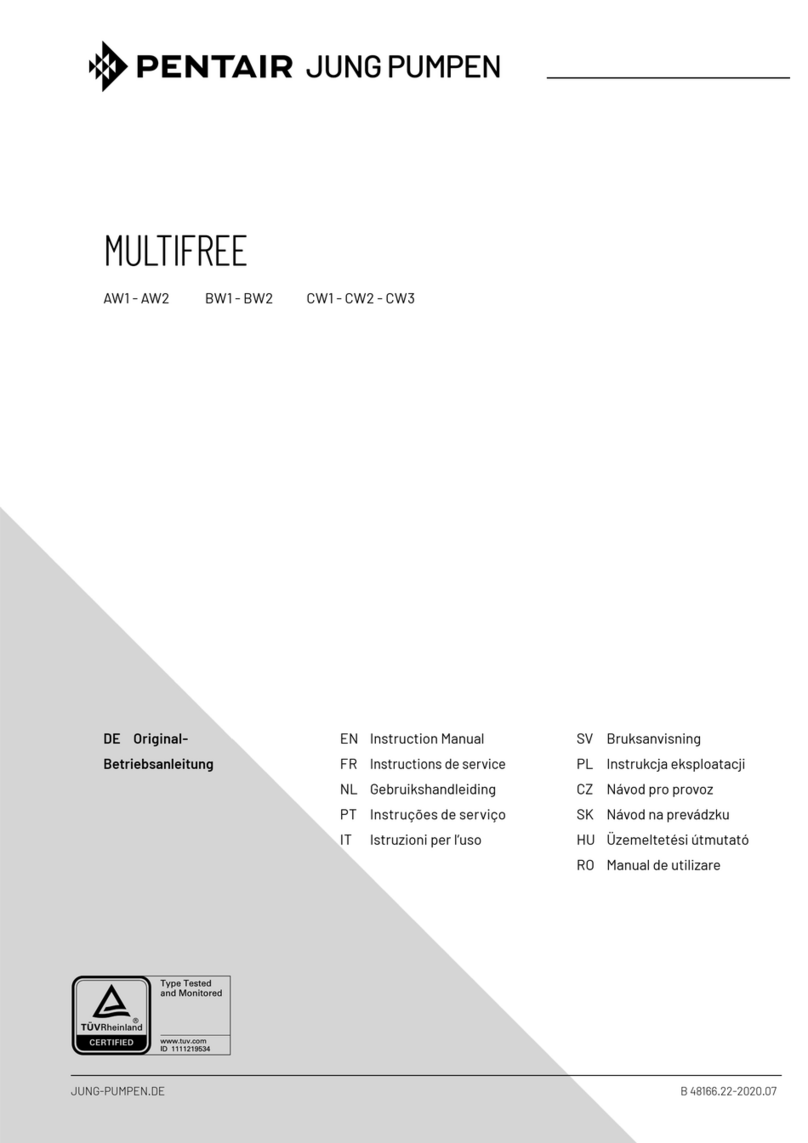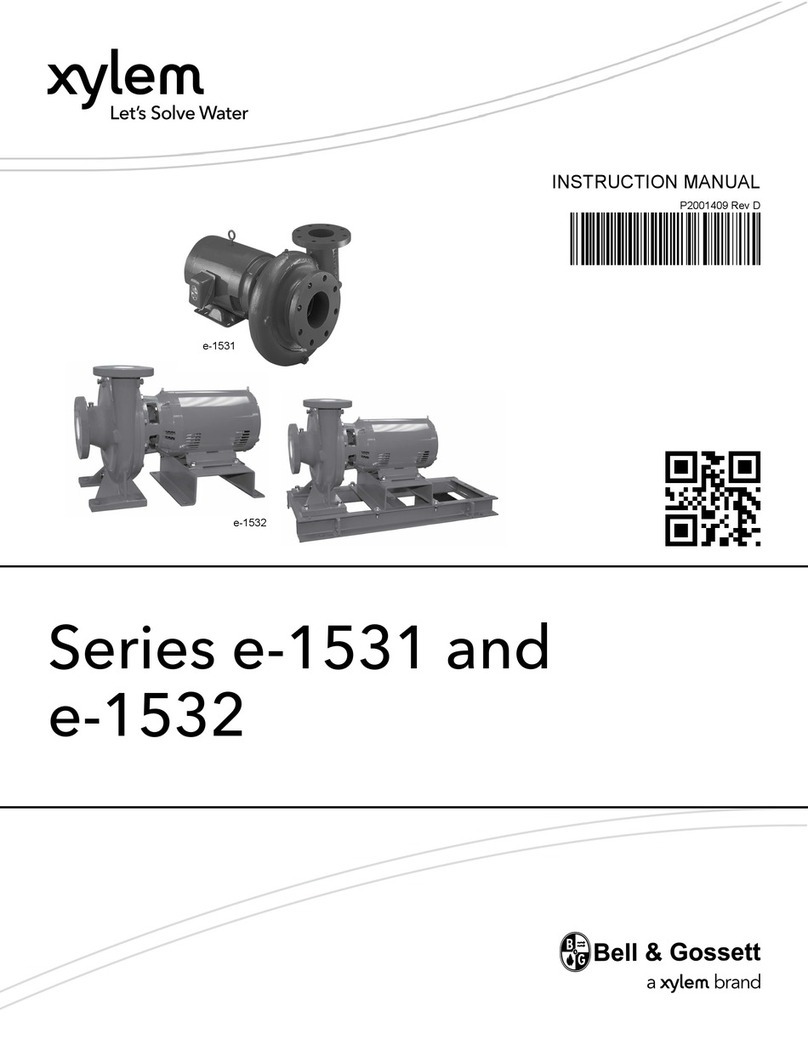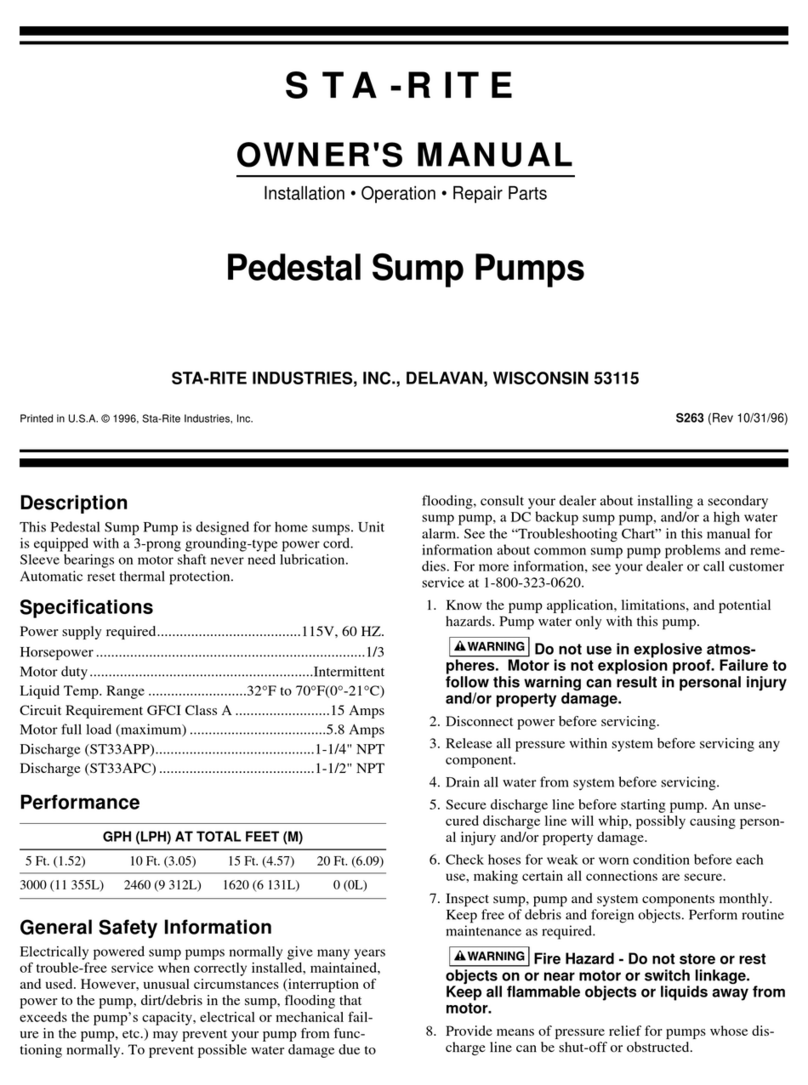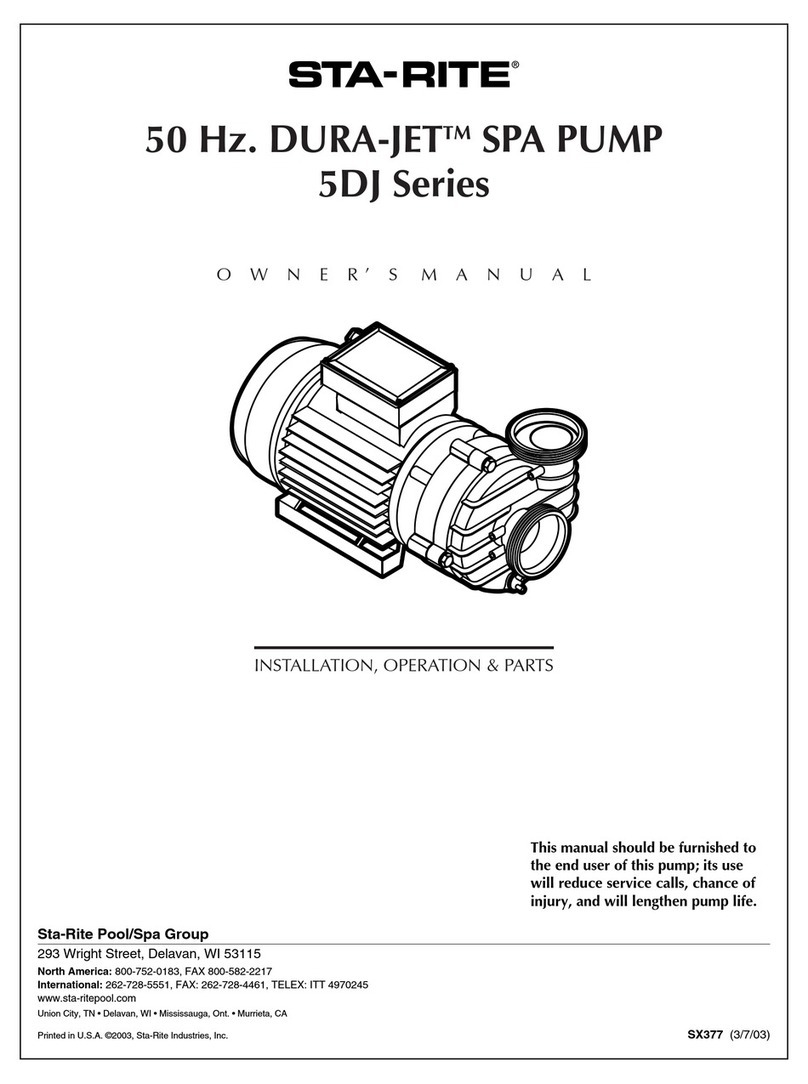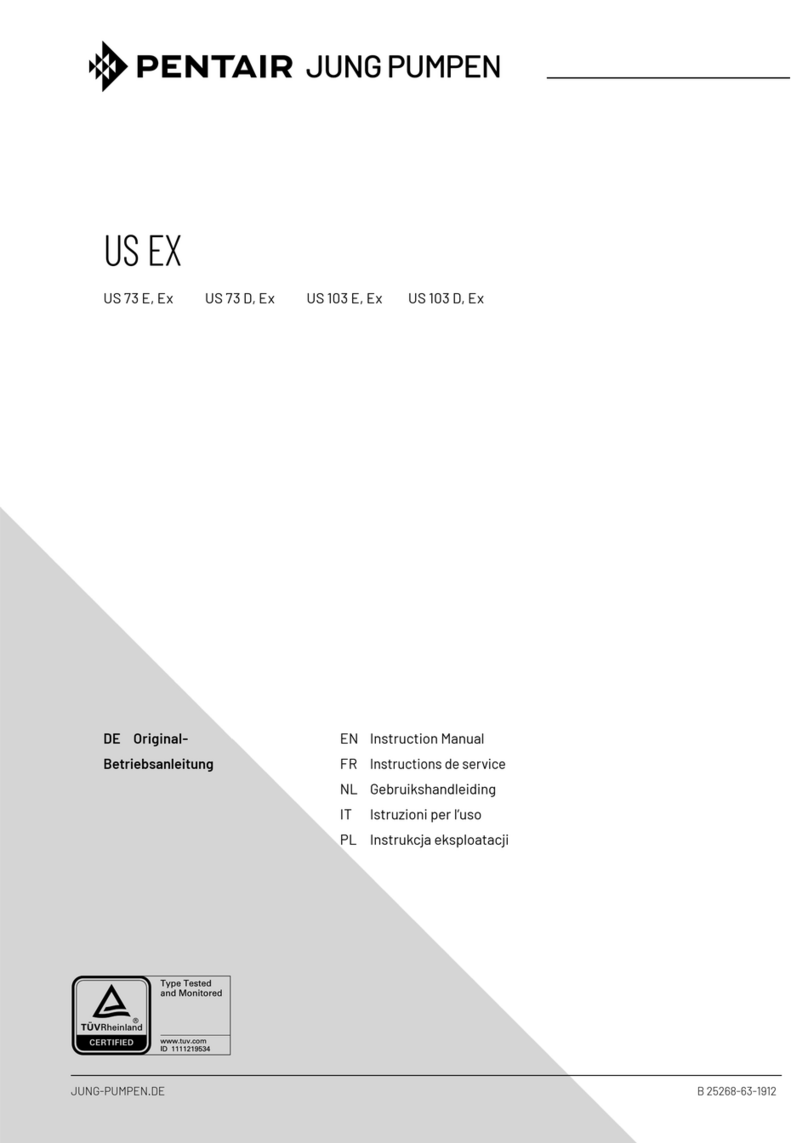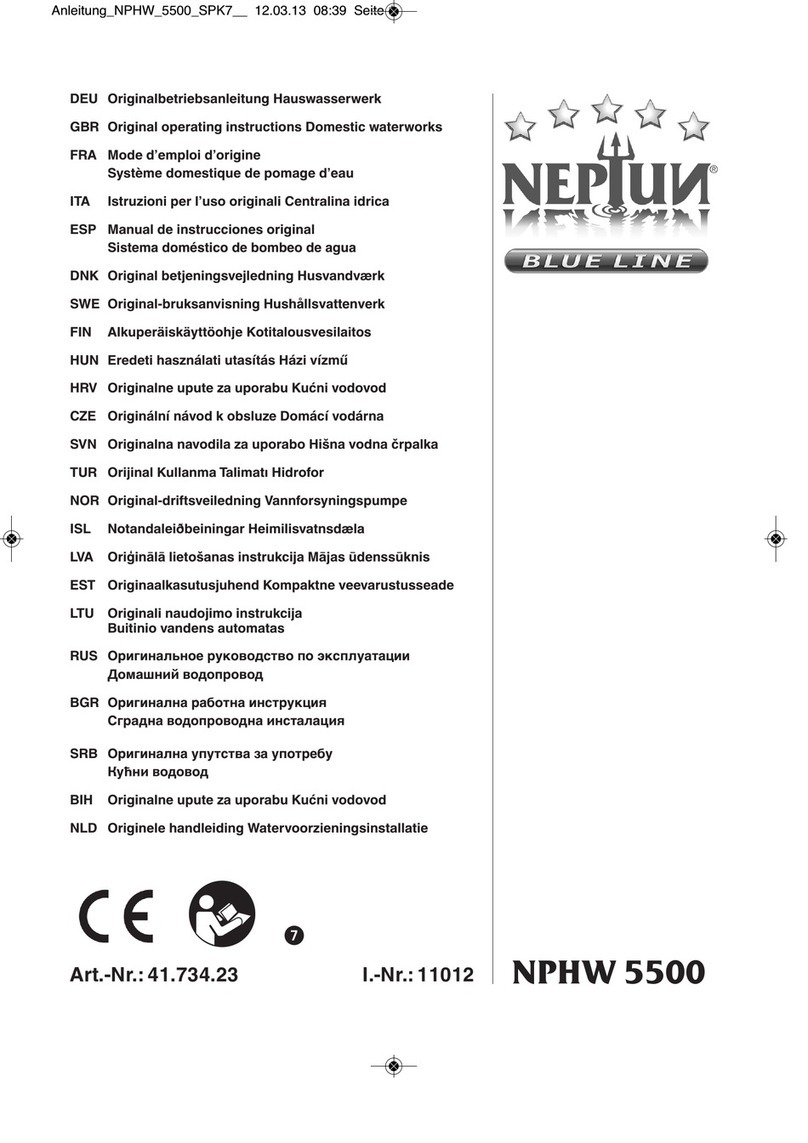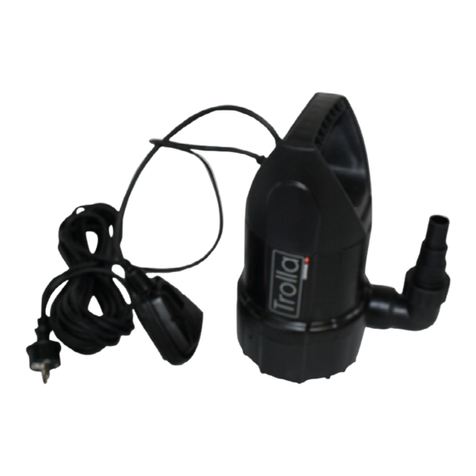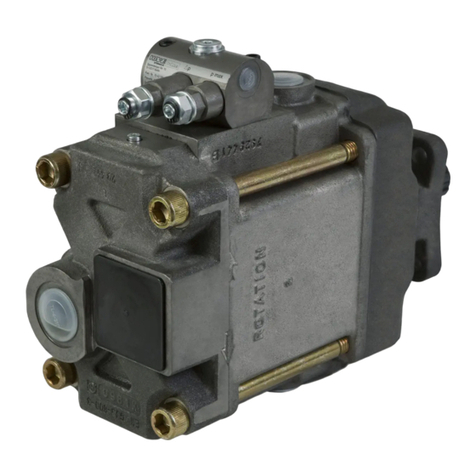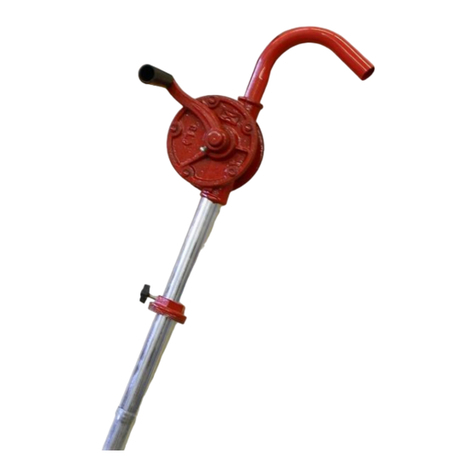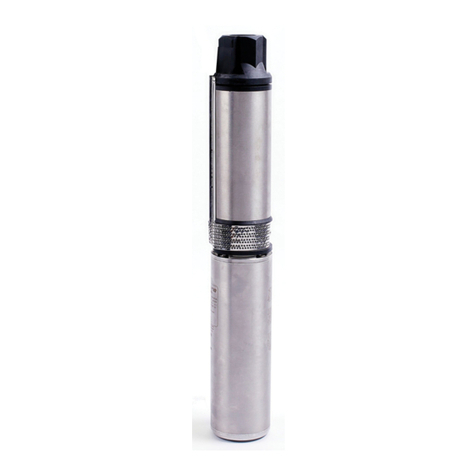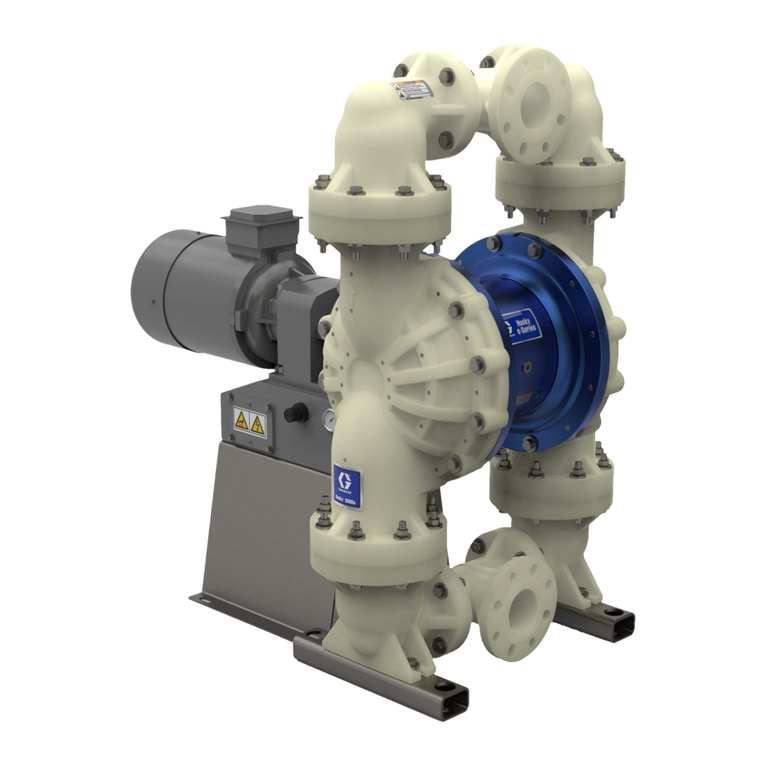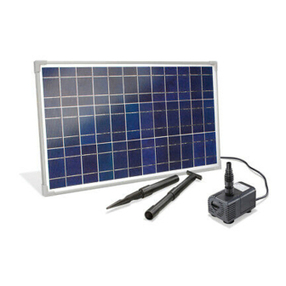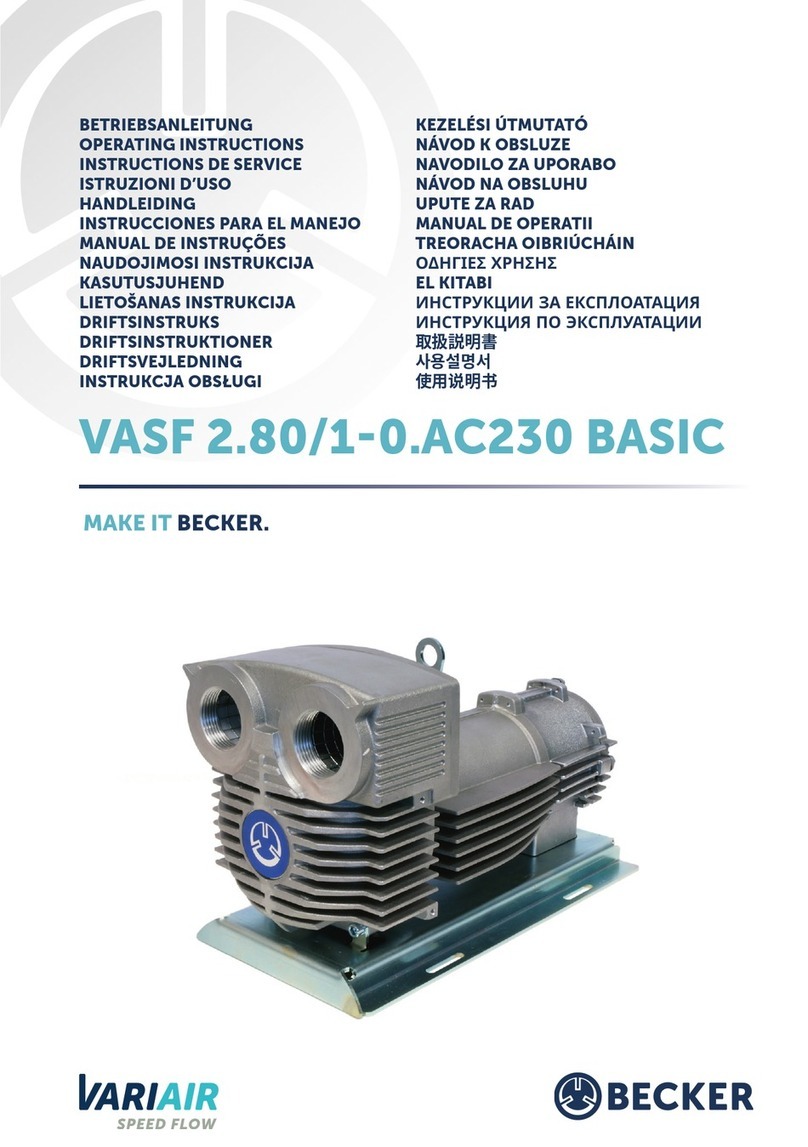3
hole in the impeller chamber to let
out trapped air. If this hole
becomes plugged, pump may air
lock. As a secondary precaution a
1/8" hole should be drilled in the
discharge pipe below the check
valve. The check valve should be
12" to 18" above pump discharge.
Do not put check valve directly
into pump discharge opening.
Packaging:
Each pump is packaged separately
in a carton marked with a catalog
number and a Hydromatic
engineering number. The pumps
are carefully packaged to prevent
damage in shipping. However,
occasionally damage may result
due to rough handling. Carefully
go over pump and check for
damage that could cause pump
to fail.
Level Controls:
All HTS33A1 pumps are supplied
with a 20 foot mechanical
(mercury-free), piggyback float
switch. The piggyback switch
is tethered directly to pump.
The switch must float free
from pump and basin wall. Plug
the switch cord plug into a
properly grounded, rated voltage
receptacle. Plug the power cord
into the back of the switch cord
and tape the cords to the discharge
pipe approximately every 12".
The power receptacle must be
located outside the wet sump or
basin due to the danger of current
leakage.
Motor Type:
The motors used in the HTS33A1
series pumps are pressed into the
cast iron housings and surrounded
by dielectric oil for superior heat
dissipation. All models use a
1/3 HP shaded pole, 1550 RPM
motor. All models have Class B
Installations
Basin or tanks must be vented in
accordance with local plumbing
codes. These pumps are not
designed for and cannot be
installed in locations classified as
hazardous in accordance with the
National Electrical Code
ANSI/NFPA 70.
When installing HTS33A1 series
pumps in high temperature
installations, ALL basins, tanks,
piping, fittings, additional floats
and cables must have rating
exceeding 200˚F (93˚C). Also
pumps are not to be used in
environments where ambient
temperatures exceed 200˚F (93˚C).
CAUTION: If pump is to be
used for pumping sewage
effluent: never enter pump
chamber after sewage or
effluent has been in basin.
Sewage water can give off
methane, hydrogen sulfide
and other gases which are
highly poisonous.
Hydromatic recommends
installing effluent pumps with a
quick removal system. The quick
removal system may be a union or
Cam-lok coupling if the pipe is
within reach from the surface, or a
rail system type quick disconnect
on deeper installations.
The dosing tank or pumping
chamber must be constructed of
corrosion-resistant materials and
must be capable of withstanding
all anticipated internal and
external loads. It also must not
allow infiltration or exfiltration.
The tank must have provisions for
anti-buoyancy. Access holes
or covers must be adequate size
and be accessible from the
surface to allow for installation
and maintenance of the system.
Access covers must be lockable or
heavy enough to prevent easy
access by unauthorized personnel.
The pumping chamber holding
capacity should be selected to
allow for emergency conditions.
The discharge pipe must be
the same size as the pump
discharge, 1-1/2" or larger. In order
to ensure sufficient fluid velocity
to prevent any residual solids
from collecting in the discharge
pipe, it is recommended that a
minimum flow of 2 per second
be maintained (12 GPM through
1-1/2" pipe, 21 GPM through 2"
pipe and 46 GPM through 3"
pipe). A full flow (ball or gate)
shut-off valve must be installed to
prevent back flow of effluent if
the pump must be removed for
service. A check valve must be
installed on pressure sewer
systems to prevent backflow and
to reduce wear on the pump
system. A high water alarm must
be installed on a separate circuit
from the pump circuit. The alarm
should have the ability to be tested
for proper operation.
motor windings, are available in
115 volts with overload
protection, and use a double
sleeve bearing design. These
pumps have no starting switches
and do not require a control panel
for individual installations.
Pump
Installation


